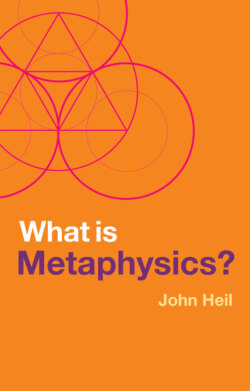Читать книгу What is Metaphysics? - John Heil - Страница 16
2 Time Goes By – Or Does It? 2.0 Yesterday, Today, Tomorrow
ОглавлениеThe question of how the appearances are related to reality is timeless and universal. Everyone is familiar with cases in which the way things appear differs from the way we know them to be. One example is the moon illusion: a full moon looks larger when the moon is close to the horizon than when it is directly overhead. Or, perhaps most famously, Earth appears to be, but is not, flat. The appearances can be robust. They can persist, even when the truth about them is known.
The moon illusion and the appearance of a flat Earth can be explained, and in that sense resolved. Other cases are more disquieting. The universe appears to be full of things, including us, that persist, move about, and undergo changes over time. Time passes. We entertain thoughts of the past and future, but we find ourselves always in the present, a present always advancing toward the future and away from the past, a “moving present.”
If we are always in the present, however, what are we experiencing when we experience time’s passing? Some have found it useful to think of time as a river. You are in a boat drifting downstream. The present is wherever the boat happens to be. What is present now – a willow on the river’s bank – will soon be past, replaced by a granite outcropping currently downstream.
Row, row, row your boat gently down the stream, merrily, merrily, merrily, merrily, life is but a dream
A pleasing metaphor, but one that ultimately proves unhelpful. Consider that granite outcropping downstream. It is there, awaiting your approach. Is this how the future is? Is the future “out there” anticipating the arrival of the present? And what of the willow you passed moments ago? Is the past like that? Does the past persist once you have moved on? In that case, then, given that you were there in the past, the past would have to include a past you in a past boat. How would that work?
Even if you have ready answers to these questions, you can see that the river of time metaphor is internally incoherent. Were your experience of the passage of time analogous to your experiencing the scene passing before you as you drift downstream, you would be a spectator, not yourself a part of that scene: you are in the boat, not on the riverbank. You, however, the real you, the you reading these words, are very much a part of the passing scene in which we all find ourselves. That puts you on the riverbank, not in the boat, thereby subtracting the element of passage.
